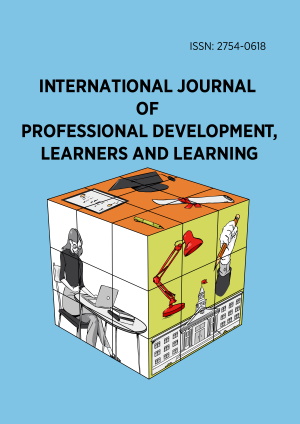Research Article
Effectiveness of Mathematics Teacher Education Training in Nigeria: An Assessment of Pre-service Mathematics Teachers’ Learning Needs
More Detail
1 Sule Lamido University Kafin Hausa, Jigawa State, NIGERIA2 Unversiti Sains Malaysia, MALAYSIA* Corresponding Author
International Journal of Pedagogical Development and Lifelong Learning, 1(1), January 2020, ep2003, https://doi.org/10.30935/ijpdll/8313
Published: 03 June 2020
OPEN ACCESS 3850 Views 2035 Downloads
ABSTRACT
Little emphasis has been given on the pre-service mathematics teachers’ learning needs on the required subject matter knowledge and skills for which they have been expected to possess at their final level of graduation, as a basis for teaching secondary school mathematics. This study employed qualitative research design, in which 30 pre-service mathematics have been interviewed on their mathematics learning needs. The finding of the study revealed that learning experiences of the training was adequate, but there is disconnection between the training curriculum and school mathematics subject matter for which the pre-service teachers have been train to teach. The pre-service mathematics teachers have viewed lecturer of the program as non-supportive which prevent them from active learning. This suggests that the program should include school mathematics curriculum in the training to enable the pre-service mathematics teachers to acquire the subject matter knowledge for which they have been train to teach. Lecturers of the program should change their attitude and behavior which might have adverse effect on pre-service mathematics teachers’ learning.
CITATION (APA)
Ibrahim, M. A., Yew, W. T., & Abd Razak, N. B. (2020). Effectiveness of Mathematics Teacher Education Training in Nigeria: An Assessment of Pre-service Mathematics Teachers’ Learning Needs. International Journal of Pedagogical Development and Lifelong Learning, 1(1), ep2003. https://doi.org/10.30935/ijpdll/8313
REFERENCES
- Adedeji, T. (2018). Revitalizing Mathematics education preparation in Nigeria for national development: An innovative view. International Electronic Journal of Mathematics Education, 13(3), 315-320. https://doi.org/10.12973/iejme/3923
- Ajeyalemi, D. (2005). Challenges of teacher education for secondary schools in Nigeria. Paper presented at 2 -day National Workshop on the Counting Crisis of Secondary School Education in Nigeria: Confronting Old and New Challenges, Abuja, Nigeria, September 13-14.
- Aluede, O., & Idogho, P. O. (2014). Refocusing Teacher Education for Nigeria’s National Development: Issues and Policies for Implementation. International Studies in Educational Administration (Commonwealth Council for Educational Administration & Management (CCEAM)), 42(3), 60.
- Anaduaka, U. S., & Okafor, C. F. (2013). Poor performance of Nigerian students in mathematics in senior secondary certificate examination (SSCE): What is not working? Journal of Research in National Development, 11(2), 1-5. https://doi.org/10.12691/education-1-7-5
- Black, K. (2010). Business Statistics: Contemporary Decision Making (6th ed.). John Wiley & Sons.
- Creswell, J. W., & Clark, V. L. P. (2017). Designing and conducting mixed methods research. Sage publications.
- Ferreira, A., & Santoso, A. (2008). Do students’ perceptions matter? A study of the effect of students’ perceptions on academic performance. Accounting & Finance, 48(2), 209-231. https://doi.org/10.1111/j.1467-629X.2007.00239.x
- Ibrahim M. A, Wun T. Y., & Nordin A. R. (2020). Mathematics Teacher Education training for Quality School Teachers; An Assessment of Mathematics Teaching Needs of Pre-Service Teachers’. International Journal of Psychosocial Rehabilitation, 24(4), 38-47. https://doi.org/10.37200/IJPR/V24I4/PR201361
- Ibrahim, M. A., Wun, T. Y., & Nordin, A. R. (2018). Mathematics Teacher Education in Nigeria: An Evaluation Model. Paper Presented at International Postgraduate Conference on Research in Education, Universiti Sains Malaysia, Penang, 16-18 August.
- Kaur, M. (2017). To Recognise, Realise and Differentiate the Learning Needs of Students. Pertanika Journal of Social Sciences & Humanities, 25(2), 503-510.
- Legault, L., Green-Demers, I., & Pelletier, L. (2006). Why do high school students lack motivation in the classroom? Toward an understanding of academic motivation and the role of social support. Journal of educational psychology, 98(3), 567. https://doi.org/10.1037/0022-0663.98.3.567
- Maslow, A. H. (1954). The instinctoid nature of basic needs. Journal of Personality, 22, 326-347. https://doi.org/10.1111/j.1467-6494.1954.tb01136.x
- Musa, M. (2011). Teacher Professional Support and Mentoring as Viable alternative to the falling Standards of Education: A case study with Mathematics. Paper presented at Annual speech and prize day of A. B. U. Staff School Zaria, Kaduna, Nigeria.
- Nakhat, N., & Tazyeen, B. (2016). Global Objectives of quality Education, Possibilities and Challenges. IOSR Journal of Humanities and Social Science (IOSR-JHSS) 21(2), 16-24. https://doi.org/10.9790/0837-21241624
- Nigerian University Commission. (2019). Manual for accreditation procedures of academic programs in Nigerian university (MAP). Retrieved from http://nuc.edu.ng
- Ntuli, E., Nyarambi, A., Agamba, J. J., & Ntuli, V. (2018). Globalization and Teacher Education: Challenges and Solutions to 21st Century Content Preparation and Pedagogy in Africa. In Teacher Training and Professional Development: Concepts, Methodologies, Tools, and Applications (pp. 1443-1462). IGI Global. https://doi.org/10.4018/978-1-5225-5631-2
- Obioma, G. O. (2005). Popularizing mathematical science for technological Development. In S. O. Ale & L. O. Adetula (Ed.). Reflective and intellective Positive papers on mathematics education. Abuja: NMC.
- Omorogbe, E., & Ewansiha, J. C. (2013). The challenge of effective science teaching in Nigerian secondary schools. Academic Journal of Interdisciplinary Studies, 2(7), 181. https://doi.org/10.36941/ajis
- Rimm-Kaufman, S., & Sandilos, L. (2013). Improving students’ relationships with teachers to provide essential supports for learning: Positive relationships can also help a student develop socially. American Psychological Association. Retrieved from https://www.apa.org/education/k12/relationships#:~:text=Yes%2C%20positive%20teacher%2Dstudent%20relationships,et%20al.%2C%202004).
- Singh, K., Granville, M., & Dika, S. (2002). Mathematics and science achievement: Effects of motivation, interest, and academic engagement. The Journal of Educational Research, 95(6), 323-332. https://doi.org/10.1080/00220670209596607
- Tanveer, M. A., Shabbir, M. F., Ammar, M., Dolla, S. I., & Aslam, H. D. (2012). Influence of Teacher on Student’Learning Motivation in Management Sciences Studies. American Journal of Scientific Research, 67(1), 76-87. https://doi.org/10.29333/ejmste/94571
- Tongco, M. D. C. (2007). Purposive sampling as a tool for informant selection. Ethnobotany Research and applications, 5, 147-158. https://doi.org/10.17348/era.5.0.147-158
- Umar, Y. (2019). STEM Education as a Catalyst for National Development: Problems and Prospects in Nigeria. International Learning Science and Mathematics Journal, (14), 48-59.

 The articles published in this journal are licensed under the CC-BY Creative Commons Attribution International License.
The articles published in this journal are licensed under the CC-BY Creative Commons Attribution International License.